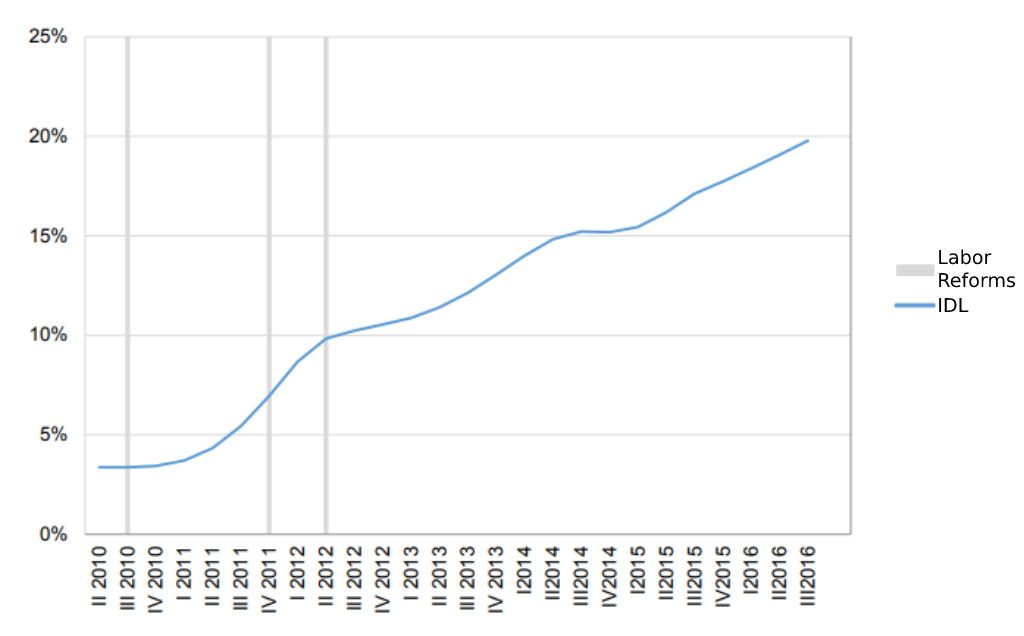
IESE Insight
Spain's labor dynamism hits highest point since 2010
One out of every five Spanish jobs changed hands in the third quarter of 2016. Growing companies opting for flexible working arrangements are responsible for most internal movements, according to the report.
Spain's labor dynamism has grown to 19.8 percent in the third quarter of 2016 — the highest level recorded by the Meta4 index of labor dynamism (IDL), which was launched in 2014 to measure job movements since 2010.
Put another way, between July and September, approximately one out of every five jobs already in existence passed from one person to another. This is according to the fifth IDL report, prepared by Professor Marta Elvira and Stefano Visintin in collaboration with the human capital management company Meta4.
In sum, the report finds high and increasing dynamism in the hiring practices of the companies studied. From the beginning of 2011 through September 2016, this dynamism has grown more than 15 percentage points. Staffing flexibility seems to be an increasing need and reality in Spain as companies grow and when they downsize.

More dynamism in expanding companies
The report finds that greater dynamism in the management of personnel accompanies corporate expansions as well as contractions.
For growing companies, labor dynamism increased from 3 percent in 2010 to 14 percent in the third quarter of 2016, according to the study. For downsizing companies, the upturn in dynamism was more subdued — from 0 to 5.5 percent.
The IDL Meta4 indicates that job creation remains stable and that job destruction is shrinking. Although job growth had lost some steam in the second half of 2015, it rebounded in the beginning of 2016 and hasn't lost ground since. In terms of net jobs, for every 100 positions, 3 were destroyed, while 5.5 were created.
Methodology, very briefly
The Meta4 IDL analyzes labor mobility as workers retire, step down or are dismissed from their positions. It also measures changes in employment contracts (from fixed-term to permanent, full-time to part-time, from one function or department to another, etc.). Importantly, it picks up on job movements that do not directly depend upon the economy — i.e., outright job creation or elimination.
For the fifth edition of the index, data was gathered from 55,000 employees at companies operating in Spain.
